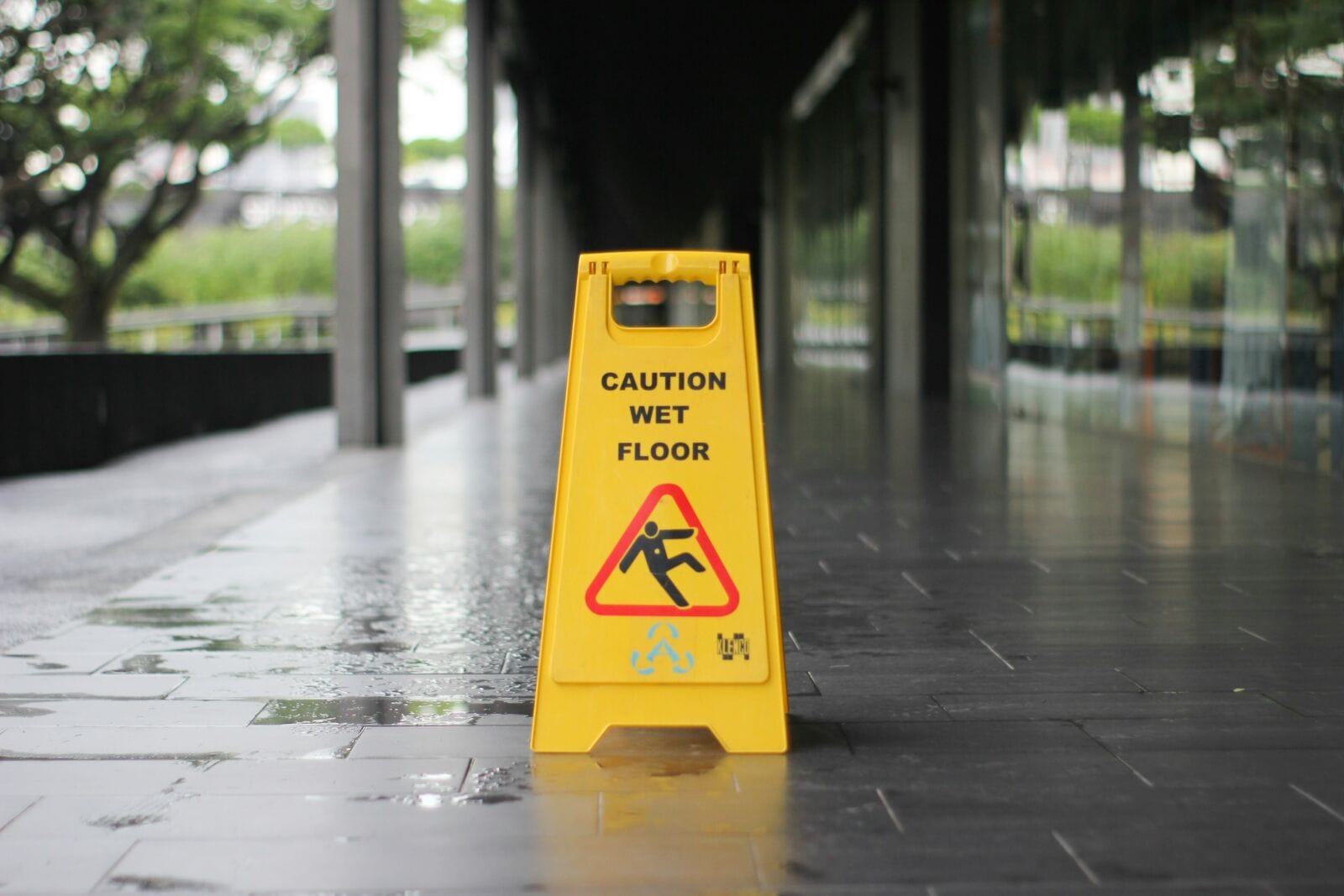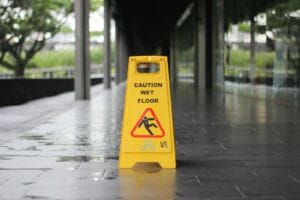Every year, thousands of individuals hurt themselves in slip-and-fall situations. Sometimes, it happens when they’re at home. Presumably, if that occurs, then they can’t sue anyone.
However, if you slip and injure yourself while in a store or on the premises of a business of some kind, then you might sue them. The average slip-and-fall settlement gets you $10K-$50K, but that number can vary dramatically.
In this article, we will talk about slip-and-fall settlements and what you should know about them. We’ll cover the most common scenarios where they occur, and also what you can do if you injure yourself this way.
MORE NEWS: The 100 best doctors in Arizona for 2025
Common Slip-and-Fall Scenarios in Businesses
First, let’s go over what a slip-and-fall in a store might resemble. Let’s say you’re in a grocery store. An employee drops a jar of pasta sauce, and it breaks open and spills its contents. The worker goes to get a mop and bucket to clean it up.
Meanwhile, you walk by with your shopping cart. The employee who broke the bottle didn’t put up a sign yet indicating there’s any danger.
You don’t see the spilled pasta sauce, and you slip on it and fall. You twist your ankle. It’s painful, but you manage to hobble out of the store and to continue with the rest of your day.
In that situation, it’s very likely that you can win a slip-and-fall lawsuit if you decide to bring one against the grocery store. You probably won’t sue the individual who broke the jar.
If they went to get a sign and a mop and bucket to clean up the spill, then they can say they acted appropriately. You just happened to come by and slipped before the employee managed to put up the warning sign.
You can probably sue either the grocery store chain or the entity that manages the property, though. When you sue them, you’re filing a lawsuit that the legal profession calls premises liability. Premises liability lawsuits comprise one of the subsections of personal injury law.
You might also sue the grocery store chain or the building’s management company if you slip on some ice and fall on the sidewalk in front of the building in the winter. They should put salt down to melt the ice or take any other means necessary to protect their customers. If they didn’t do that, then you will likely win your case.
Common Slip-and-Fall Scenarios in Private Homes
You can also sometimes sue private citizens if you slip and fall while on their property. Maybe you’re heading up the front walk of a neighbor’s house. You slip on some ice and fall.
If that happens, then you might sue the neighbor. You can allege negligence on their part. You might say that they should have put ice melt down.
However, winning these lawsuits usually becomes more complicated than you might expect. Maybe the defendant’s lawyer says that there’s just an elderly person living there. They’re frail, so they’re not physically capable of going down the front steps and putting ice down on the walkway leading to the porch.
You might also run into a situation where the defendant’s lawyer says the family who lives there didn’t know about the ice that formed on their walkway. The lawyer might argue that since they didn’t know about the potentially dangerous situation, they didn’t cause your injury. If so, you will probably have a harder time establishing negligence.
In short, it’s often harder winning a personal injury lawsuit or forcing a settlement offer from a private citizen if you slip and fall while on their property.
What Does the Term “Settlement” Mean?
The term settlement means the person or entity you’re suing agrees to pay you a sum of money so that you drop your lawsuit. In the case of a slip-and-fall lawsuit, you might force a settlement offer if the entity that you’re suing feels that you probably have enough evidence to prove conclusively that they acted negligently, and that their action or inaction caused your injury.
If the entity you’re suing won’t settle, then your case will go to trial. You should know, though, that this happens rarely.
Usually, the person or entity you’re suing will want to settle so that they can put this incident behind them. If you’re suing a business entity, that becomes even more likely.
The grocery store chain, building management company, or whatever other entity you’re suing probably doesn’t like having their name mentioned as part of a negative news story. They will almost always want to settle so that you’ll stop saying they did something wrong.
What to Do if You Think You Can Sue Following a Slip-and-Fall Incident
If you believe that you can sue someone following a slip-and-fall incident, whether that happened at someone’s home or in a business, then you should first talk to a personal injury lawyer. Ideally, you want one who knows about these kinds of lawsuits in particular.
You can tell them all about what happened. They might ask some questions. They may want to know if any store cameras recorded the accident. If you took any pictures or video of the accident site when you fell, they will likely want to know about that as well.
The lawyer will want to know whether anyone saw the accident. They will probably want to know if you saw a doctor and what injuries you sustained.
What Makes Getting Money from Your Lawsuit More Likely
If you want to make it more likely for the entity you are suing to extend a settlement offer, then you and your lawyer will want to collect as much evidence as possible. If there’s no video or photographic evidence, then that will make proving your case more difficult. You will also have a harder time if no one else saw you slip and fall.
If you have plenty of evidence, though, then forcing a settlement offer becomes much more probable.




